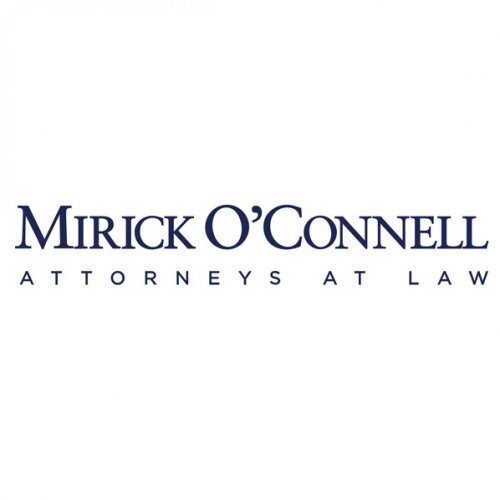Best Nonprofit & Charitable Organizations Lawyers in Massachusetts
Share your needs with us, get contacted by law firms.
Free. Takes 2 min.
Or refine your search by selecting a city:
List of the best lawyers in Massachusetts, United States
About Nonprofit & Charitable Organizations Law in Massachusetts, United States
Nonprofit and charitable organizations play a vital role in Massachusetts. These entities operate to benefit the public and advance social, educational, religious, or scientific objectives rather than to make a profit. Massachusetts law provides a structured framework for creating, operating, and dissolving nonprofit corporations, as well as requirements for charitable organizations. Federal laws, especially those affecting tax-exempt status through the IRS, also apply. Navigating both sets of regulations is essential to sustaining a compliant and successful nonprofit or charitable entity.
Why You May Need a Lawyer
There are many scenarios where legal assistance is crucial in the nonprofit and charitable sector. Starting a nonprofit involves complex filings and legal considerations, from creating articles of organization to applying for tax-exempt status. Organizations may face issues related to governance, employment, contracts, intellectual property, or state and federal compliance. Mergers, dissolutions, and dealing with government investigations or audits can also require skilled legal guidance. An experienced attorney can help ensure compliance, resolve disputes, and protect your organization’s mission and reputation.
Local Laws Overview
Massachusetts regulates nonprofits and charities primarily through the Massachusetts General Laws Chapter 180, which covers nonprofit corporations. The Attorney General’s Office oversees charitable organizations, requiring annual filings and financial reporting. Nonprofits must file articles of organization with the Secretary of the Commonwealth and comply with bylaws and governance rules. The state mandates annual corporate meetings, maintenance of records, and adherence to fiduciary duties by directors and officers. Soliciting charitable donations involves additional registration and reporting and is also regulated by the Attorney General. State tax exemption requires a separate application to the Massachusetts Department of Revenue, aside from federal IRS exemption.
Frequently Asked Questions
What is the process for starting a nonprofit in Massachusetts?
To start a nonprofit in Massachusetts, you must draft and file articles of organization with the Secretary of the Commonwealth, adopt bylaws, appoint directors, and apply for federal tax-exempt status with the IRS. You may also need to register as a public charity with the Attorney General and apply for state tax exemptions.
What is the difference between a nonprofit and a charity in Massachusetts?
A nonprofit is a broad term for organizations not operating for profit, including trade associations and social clubs. Charities are a subset of nonprofits that serve a charitable purpose, like education, religion, or relief of poverty, and are regulated by the Attorney General’s Office.
Do Massachusetts nonprofits automatically receive tax-exempt status?
No, nonprofits must apply for tax-exempt status at the federal level with the IRS (usually 501(c)(3)) and separately apply for state tax exemption with the Massachusetts Department of Revenue.
Are annual filings required in Massachusetts for nonprofit organizations?
Yes, nonprofits must file an annual report with the Secretary of the Commonwealth and, if registered as a public charity, must also file annual financial reports with the Attorney General’s Office.
How are the board of directors and officers regulated in Massachusetts nonprofits?
Bylaws generally govern how directors and officers are chosen and operated, but state law requires at least three directors. Directors and officers have fiduciary duties and must act in the best interests of the organization.
Do I need to register before soliciting donations in Massachusetts?
Most organizations soliciting donations in Massachusetts must register as a public charity with the Attorney General’s Non-Profit Organizations/Public Charities Division and comply with ongoing reporting requirements.
What are the penalties for failing to register or file annual reports in Massachusetts?
Failure to properly register or submit reports can result in penalties, late fees, loss of good standing, and potentially loss of tax-exempt status. It may also trigger investigations by regulatory authorities.
Can a Massachusetts nonprofit pay its officers or directors?
Nonprofits may compensate officers and, in some circumstances, directors, but such payments must be reasonable and justifiable for services rendered. Excessive compensation can endanger tax-exempt status and violate state law.
What happens if a nonprofit organization needs to dissolve in Massachusetts?
Dissolution involves following state procedures, settling all debts, filing dissolution documents with the Secretary of the Commonwealth, and distributing remaining assets for charitable purposes. The Attorney General may have oversight in certain cases.
Are there special rules for fundraising events or raffles in Massachusetts?
Yes, fundraising activities such as raffles, bingo, or games of chance are subject to specific regulations and licensing requirements. Ensure compliance with both state and local rules before holding such events.
Additional Resources
If you need more information or guidance, the following resources may be helpful:
- Massachusetts Attorney General’s Non-Profit Organizations/Public Charities Division - Oversees registration and regulation of charitable organizations.
- Secretary of the Commonwealth of Massachusetts - Handles incorporation and annual filings for nonprofit corporations.
- Massachusetts Department of Revenue - Administers state tax exemptions for qualified organizations.
- Internal Revenue Service (IRS) - Provides guidance and forms for federal tax-exempt status.
- Massachusetts Nonprofit Network - Offers education, advocacy, and support for local nonprofits.
- Pro bono legal aid organizations - Can help with nonprofit legal formation and compliance questions for eligible organizations.
Next Steps
If you are considering forming a nonprofit or need help with ongoing compliance in Massachusetts, it is smart to consult a qualified attorney knowledgeable in nonprofit law. Start by gathering your organization’s governing documents, mission statement, and any correspondence with regulatory bodies. Schedule a consultation with a local lawyer to review your options or address complex legal issues. You may also wish to reach out to the agencies and organizations listed under the Additional Resources section for further information or preliminary guidance. Being proactive can help your nonprofit organization thrive and avoid costly legal challenges.
Lawzana helps you find the best lawyers and law firms in Massachusetts through a curated and pre-screened list of qualified legal professionals. Our platform offers rankings and detailed profiles of attorneys and law firms, allowing you to compare based on practice areas, including Nonprofit & Charitable Organizations, experience, and client feedback.
Each profile includes a description of the firm's areas of practice, client reviews, team members and partners, year of establishment, spoken languages, office locations, contact information, social media presence, and any published articles or resources. Most firms on our platform speak English and are experienced in both local and international legal matters.
Get a quote from top-rated law firms in Massachusetts, United States — quickly, securely, and without unnecessary hassle.
Disclaimer:
The information provided on this page is for general informational purposes only and does not constitute legal advice. While we strive to ensure the accuracy and relevance of the content, legal information may change over time, and interpretations of the law can vary. You should always consult with a qualified legal professional for advice specific to your situation.
We disclaim all liability for actions taken or not taken based on the content of this page. If you believe any information is incorrect or outdated, please contact us, and we will review and update it where appropriate.
Browse nonprofit & charitable organizations law firms by city in Massachusetts
Refine your search by selecting a city.
















